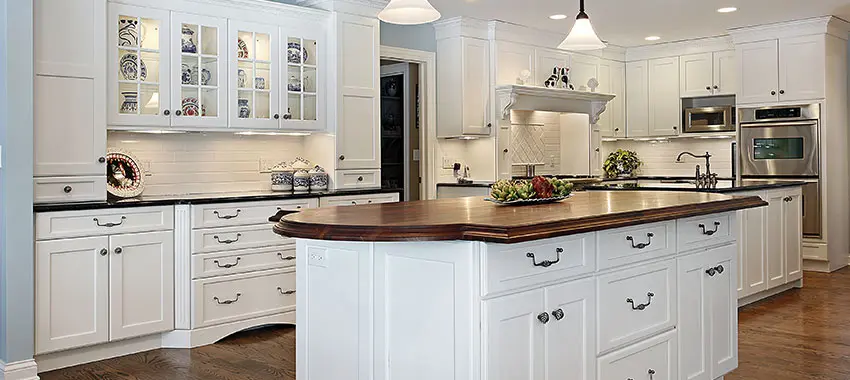
Expert Tips To Tell Real From Fake Granite Countertops
- Posted on
- FlintstoneCountertops
Since the 1990s, granite has been the number one choice for luxury countertops. Due to their popularity, granite countertops attract plenty of unscrupulous people in business that make fake countertops. Don’t think that you can easily tell fake from real countertops. Today’s business people pay attention to every detail such that the countertops look very realistic that you will buy them thinking they are real.
Fake granite basics
There are all types of counterfeit granite slabs in the market. There are fakes such as vinyl films that you can roll out to cover countertops. There are also cheap laminates that are printed to resemble granite. There are even fake materials designed for commercial kitchens and bathrooms that have a “granite” finish that can be hard to tell, especially if you are new.
Regardless of how they resemble granite, none of these fake materials are close to the beauty and durability of granite. When you drop a hot pan or grass on the surfaces, the fake materials easily get damaged.
For you to avoid the fake granite, you need to be cautious of where you buy from. Most of the homeowners end up buying counterfeit granite when they are trying to save money. Before you settle on a given stone, take time to visit a few stores and get the average price of the slabs.
If the price is too low than average, the slab is most likely fake, and you should stay away from it. You can also avoid buying fake slabs by working with a reputable granite contractor. A good contractor will not only properly install the countertops, but also help you pick the best ones for your home.
For the countertops to look great and last for long, you need to buy the genuine ones. To help you out, here are things you should look out for to tell whether the countertops are real or fake:
Check the color and pattern
Pay attention to the color and pattern of the granite slab. If the slab has the same color and even throughout without any variation, it’s most likely human-made.
Since granite is natural, every slab is unique in its way. Not two tiles have exactly similar veins, color, and texture.
Consider the cost
This might seem like a no brainer, but you will be surprised how many homeowners will buy fake, cheap granite thinking they have got a great deal. When you visit some of the stores, they will tell you that they have a special offer and yet they want to sell you the fake countertops.
Regardless of the store you visit, if the price is too low than most of the other stores, the chances are you are on the verge of buying fake, low quality granite.
Try the water test
Pour water on the slab. If the granite is real, water should be absorbed rather than run off the slab. Manmade granite is made of epoxy resins that are completely nonporous; therefore, they don’t absorb liquids. Natural stone, on the other hand, absorbs water as is porous.
You can tell when absorption is happening by the darkening of the stone as the pores fill with water. While this method will help you to pick out at least 90% of fake slabs, it has its flaws as the fake slabs can absorb water due to their differing densities and construction materials.
Tap on the slabs
When you are in the stores, tap on the slabs, and listen. Real granite produces a ringing sound when you tap it, while fake granite doesn’t. The reason for this is because granite is made from quartz crystals and resins. Since the slabs are nonporous, the sound is muted or dull hence, you can’t hear it.
Check the joints
This is a method you can use to confirm after buying the pieces and installing them. If the granite is humanmade, you won’t notice any shift of the pattern at the seams. With real granite, you will see a pattern change at the time of installation.
You should note that experienced granite installers Rockville try to reduce the pattern changes as much as they can, which can make it hard for you to see them. For you to easily identify the difference, you should be present at the time of installation.

